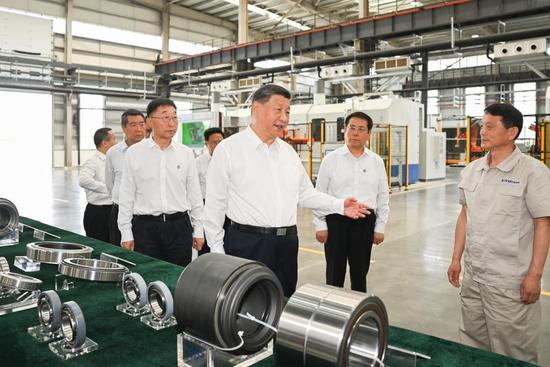When Walmart announced that it will have to raise prices due to tariffs imposed by his administration, U.S. President Donald Trump lashed out at the giant retailer and said the company should just "EAT THE TARIFFS" and "not charge valued customers ANYTHING".
"I'll be watching and so will your customers!!!" Trump posted on social media over the weekend, saying that "Walmart should stop trying to blame Tariffs as the reason for raising prices throughout the chain".
In response, a Walmart spokesperson said: "We have always worked to keep our prices as low as possible, and we won't stop. We'll keep prices as low as we can for as long as we can, given the reality of small retail margins."
Walmart won't be the only business to raise prices to offset the extra cost from tariffs, and the "American Dream" will be further out of reach for the majority of people as a result, according to studies.
An analysis by the Ludwig Institute for Shared Economic Prosperity, which tracks the Minimal Quality of Life Index, or MQL, found that for the bottom 60 percent of U.S. households, a "minimal quality of life" is out of reach.
The study analyzed not only basic necessities like housing, food and healthcare but also education, transportation, technology, leisure and more.
"By tracking costs associated with this 'basket of American Dream essentials', the MQL provides a more holistic view of what it means for individuals to have a minimal quality of life in America," the study said.
Doubling cost
The study found that between 2001 and 2023, the cost of affording a basic level of economic security doubled — housing costs soared 130 percent, healthcare 178 percent and savings required to attend an in-state, public university 122 percent. However, median earnings declined for this group by 4 percent after adjusting for MQL.
The study said in 2023, the bottom 60 percent of households earned just 22.1 percent of all disposable income, but needed 39 percent to meet MQL. On average, these households earn $38,000 per year, a shortfall of more than $29,000 to meet the MQL.
These households now face rising costs of living as a result of the new tariffs. Goods such as clothing and textiles will see the highest price jumps, according to an analysis by The Budget Lab at Yale. The study was based on the effective tax rates as of May 12, when the U.S. and China reached a deal to lower the 145 percent tax hike on Chinese goods to 30 percent.
In the short run, consumers will see prices increase 15 percent for leather products (shoes and handbags), 14 percent for apparel and 11 percent for textiles (beddings and towels).
In the long run, after global supply shifts, leather prices will remain 19 percent higher, while apparel will stay 16 percent and textiles 14 percent higher, according to the analysis.
Food prices will rise 2.3 percent in the short run and stay 2.3 percent higher in the long run. Fresh produce will initially be 3 percent more expensive, while stabilizing at 2.9 percent higher.
Meanwhile, prices of motor vehicles will rise 9.3 percent in the short run and will stay 6.2 percent higher (an additional $3,000 per car on average) in the long run.
The analysis said tariffs burden households at the bottom of the income ladder more than those at the top as a percentage of income.
"Traditional headline economic indicators like GDP and unemployment tell us the economy is thriving, but they don't reflect the lived reality of most Americans," Gene Ludwig, chairman of Ludwig Institute for Shared Economic Prosperity, said in a statement.
"Americans are working harder than ever, fueling our economic growth, but the benefits of that hard work are not being distributed in a way that supports upward mobility for too many middle- and low-income Americans."
The tariff policy is not just causing price increases for U.S. consumers, but it is also projected to reduce the country's GDP and increase the rate of unemployment, according to an analysis by The Budget Lab at Yale, based on the effective tax rates.
According to the analysis, the effective tariff rates will result in extra expenses of $2,823 per household, and the 2025 GDP output will be reduced by 0.65 percent with a long-term reduction of 0.3 percent per year.
By the end of the year, unemployment is projected to rise by 0.35 percent — meaning 456,000 more people will go without a paycheck compared to a year ago.


















































 京公網安備 11010202009201號
京公網安備 11010202009201號